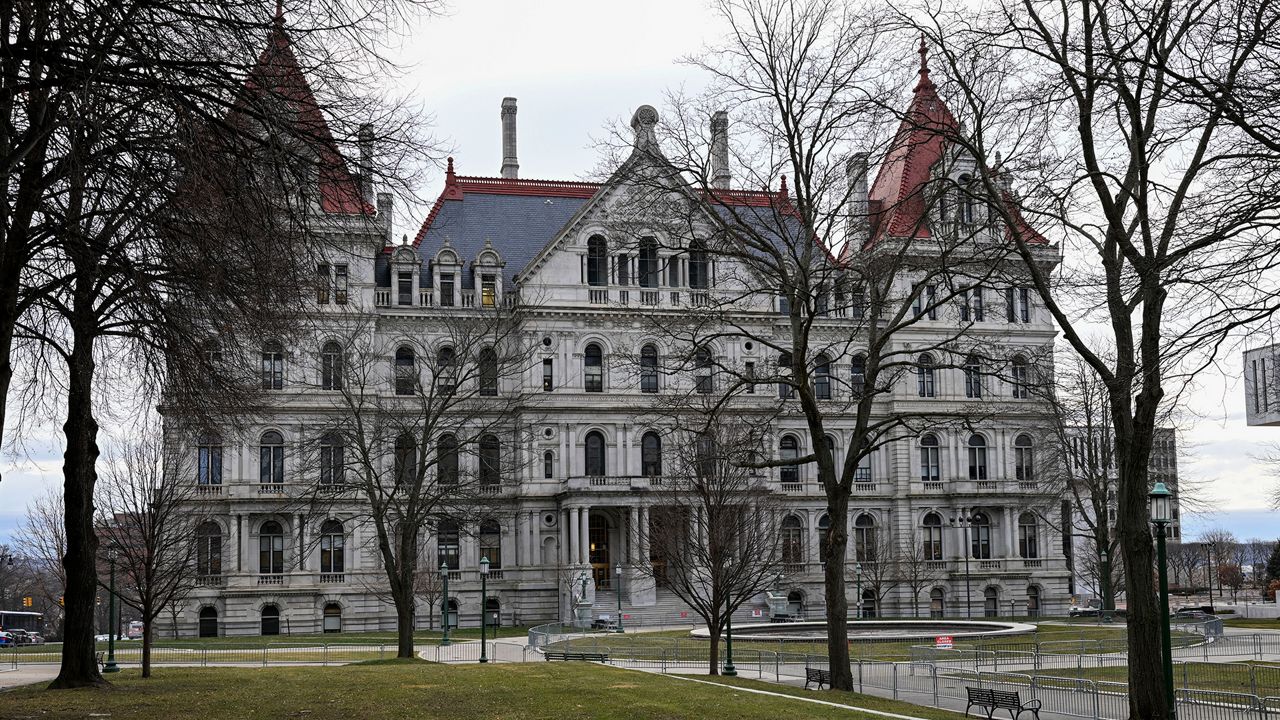State lawmakers return to Albany on Monday as crunch time for the budget will begin: A spending plan is expected to pass by April 1, the start of New York's fiscal year.
The budget under consideration includes provisions meant to help struggling people recover from the financial effects of the pandemic. But deep fiscal uncertainty remains amid global tensions and spiking inflation. Here are five key issues facing lawmakers and Gov. Kathy Hochul:
1. Gas tax pains
The price per gallon of gasoline has spiked to more than $4 in nearly every area of the state amid the ongoing war in Ukraine and skyrocketing inflation. The high cost of fuel could lead to further economic problems for the cost of staples like food and basic goods, not to mention getting to school and work.
Democrats in the state Senate advanced a proposal that would suspend New York's per gallon taxes on gasoline from May 1 until the end of the year. Assembly Democrats are open to striking a deal, but Gov. Kathy Hochul is yet to embrace any proposals, questioning whether consumers would actually benefit.
Then there is the hit the budget would take from such a move.
New York collects about $2 billion in gas taxes each year, which amounts to about 48 cents a gallon. The state uses the money to help maintain roads, bridges and other basic infrastructure.
Still, a gas tax holiday or suspension has bipartisan backing in the Legislature and is likely the most potent issue facing New Yorkers right now.
2. Public safety
Hochul has proposed making significant changes to New York's existing bail laws as concerns over a sharp increase in violent crime continue to ripple among voters in New York.
Hochul wants to give judges new, specific criteria to determine who is eligible for bail. Her proposal also calls for strengthening Kendra's Law, which requires people who have mental health issues receive treatment. People facing multiple offenses would not be released.
Lawmakers and law enforcement officials have called for changes to the law that largely ended cash bail requirements for many criminal charges. Criminal justice reform advocates have insisted such efforts are misguided in part, linking the rise in crime to the aftershocks of the pandemic.
The initial bail law change was approved in part to reduce the number of people awaiting adjudication in local jails. Advocates have argued the cash bail requirements disproportionately fell on poor people and people of color.
But the bail issue is coming to a head for suburban lawmakers, many of whom are potentially facing difficult re-elections this year.
3. Casinos
Gambling companies could be entering the potentially lucrative New York City market a lot earlier than anticipated under a proposal first made by Hochul in January.
Her plan called for three casino licenses in the downstate region and fast tracking the original timeline by two years.
But there are questions with casino construction as New York has become awash in gambling options over the last 10 years. Industry observers have questioned whether the northeast corridor is oversaturated with casino options. The state recently enacted mobile sports gambling, which took effect in January.
And the social ills of gambling, including addiction, have been cited as concerns.
Nevertheless, New York is set to receive billions of dollars in gambling revenue this year. The state already has four commercially operated casinos in upstate regions, and can stand to make even more money from casinos that would cater to wealthy tourists.
New York City itself has struggled to fully bring back the jobs lost two years ago during the initial shutdown in the early weeks of the pandemic. The hardest-hit sector was in the tourism and hospitality industry.
4. Child care
State lawmakers want to spend up to $4 billion for child care programs this year as part of a bid to make it easier for middle and lower-income families to access care.
A push for child care this year comes after two years of the pandemic, a crisis that highlighted both the cost and need for programs for working adults with kids. Some lawmakers have called for a universal child care program in the state. Virtually all the budget plans, from the governor to the proposals backed by lawmakers, want some form of child care expansion in New York.
5. Excluded workers and tenants
Left out of the budget wants a replenishment of a fund meant to provide aid to workers who do not qualify for federal unemployment or pandemic assistance. Many of these workers are undocumented residents in the state who work, and last year the budget included $2 billion to provide aid.
But advocates are calling for additional aid, and some want to make the fund a permanent one.
It's not yet clear how much support will be in the budget to help people who continue to struggle from the financial effects of the pandemic. The Emergency Rental Assistance Program has run out of money, and state officials are seeking federal aid to fund it.
A moratorium on evictions for those who faced financial hardship due to the pandemic ended in January.



